Living in Australia
Shopping
Australia’s major town centres and capital cities have world-class shopping facilities. Hours are generally 9.00am to 5.00pm seven days a week, with late-night shopping until 9.00pm on Thursday or Friday.
Some supermarkets are open 24 hours a day, seven days a week. Most large chain supermarkets, like Coles and Woolworths, are open until about 10pm every day.
Banks
There are many banking institutions represented in Australia. Normal trading hours are 9.30am to 4.00pm Monday to Thursday and 9.30am to 5.00pm on Friday. Some banks are open on Saturday mornings, but all are closed on Sundays and public holidays.
Automatic teller machines (ATMs) are readily available for withdrawals 24 hours a day. Most stores and supermarkets also have Electronic Funds Transfer At Point of Sale (EFTPOS) terminals where you can pay for goods directly from your bank account and make cash withdrawals. For this reason, it is not necessary for you to carry large amounts of cash with you. Australia’s four major banks with branches across the country are the Commonwealth Bank, ANZ, Westpac and National Australia Bank (NAB).
Postal Services
Postal services are provided by Australia Post and mail is delivered once a day from Monday to Friday. For larger parcels, a card will be left in your letter box for you to take to your nearest post office for collection. The postal service is reliable and efficient with next day delivery within the same city. Most post offices are open from 9.00 am to 5.00 pm Monday to Friday. They sell stationery, post bags, phone cards and stamps, and you can also pay your electricity and telephone bills and some other accounts.
Telephones
Australia has a modern communications system. Local calls generally cost about 30c and are not timed. Interstate and international call costs will vary depending on your service provider. If you have broadband access at home, it can often be cheaper to set up a VOIP (Voice Over Internet Protocol) plan for your calls. Public telephones are widely available, and accept coins and pre-paid phone cards. Mobile phones are also very popular and are available from a variety of service providers. You can purchase a pre-paid phone or a post-paid phone. A pre-paid phone is a great option for students with limited funds. You pay for the phone handset upfront (you can buy a basic phone for under $100), and then purchase credit that can be used for several months. A post-paid phone handset is generally free, but you will be locked into a contract with your mobile service provider for up to two years. However, post-paid cap plans are great if you use your phone a lot but don’t want an expensive bill. You can find some plans that cost as little as $20 a month that provide you with $100 worth of calls and text messages. Shop around for the best plan for you.
Major telephone service providers in Australia are Telstra, Optus, Virgin Mobile and Vodafone.
Internet
Australia has hundreds of Internet Service Providers. Plans vary greatly in cost and download limits though, so shop around for the plan that’s best for you. You can search for an appropriate plan at Broadband Guide. Depending on where you live, you might have a few options for how your Internet connection is delivered. Dial-up Internet is available everywhere, but you can also get cable, ADSL and satellite broadband. Cable and ADSL are generally available in all capital cities and large regional centres, but if you live in a more rural area your best option for a fast Internet connection might be satellite.
Libraries
Aside from your institution’s libraries, you will also find public libraries in each city and town. Most libraries are open six days a week (closed on Sunday). They stock books, CDs, DVDs, newspapers, magazines, journals and ebooks. If your library does not have what you are looking for, you can usually ask them to order it for you from another library.
Borrowing items is free, but you will need to join the library and obtain a membership card. Late return of items will usually incur a small fee.
Television
Australia has more than 15 free-to-air digital channels and dozens of pay-TV channels. You do not need to purchase a licence to view free-to-air or digital channels, but there is a monthly subscription fee for the channels available on Foxtel, Austar, Select TV and several others.
Newspapers
The Australian is Australia’s national newspaper. Each state has its own major newspaper, as well as several regional newspapers and tabloids. You can do a search for your local paper on here.
